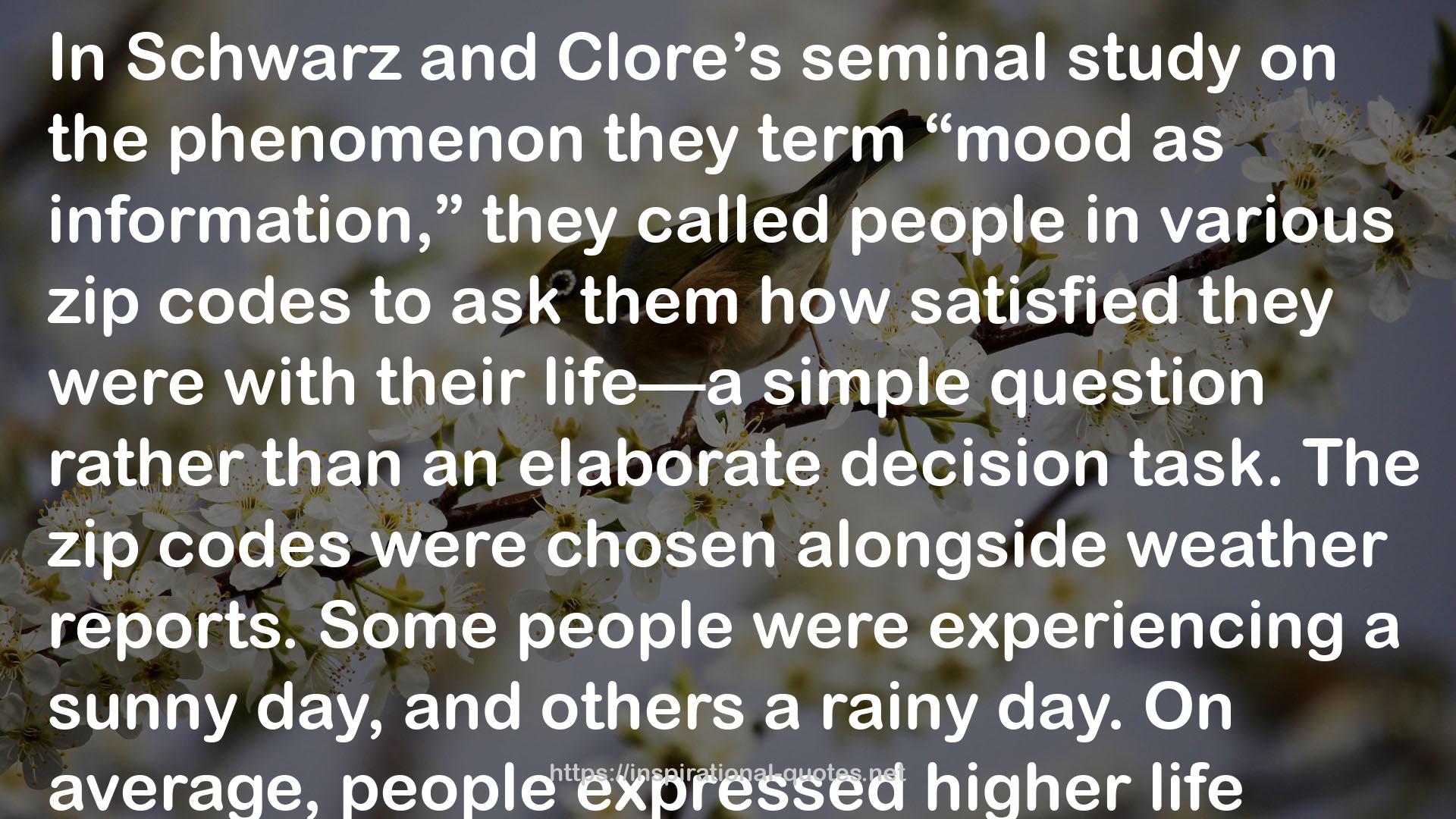" In Schwarz and Clore’s seminal study on the phenomenon they term “mood as information,” they called people in various zip codes to ask them how satisfied they were with their life—a simple question rather than an elaborate decision task. The zip codes were chosen alongside weather reports. Some people were experiencing a sunny day, and others a rainy day. On average, people expressed higher life satisfaction when the sun was out. But the effect disappeared when the experimenter drew their attention to the weather, by asking, “How’s the weather down there?” In other words, if our attention is drawn to the actual cause of our mood, it stops having an effect. Schwarz and Clore’s findings have been replicated in multiple settings. Stock market returns have been found to be lower on days with greater cloud cover—and higher when a favorite sports team wins. Over and over, incidental events affect decisions they shouldn’t actually influence, simply because they affect how we’re feeling. Tell people what’s going on, though, and they can often overcome it. Which is great news for dealing with tilt "
― Maria Konnikova , The Biggest Bluff: How I Learned to Pay Attention, Master Myself, and Win
